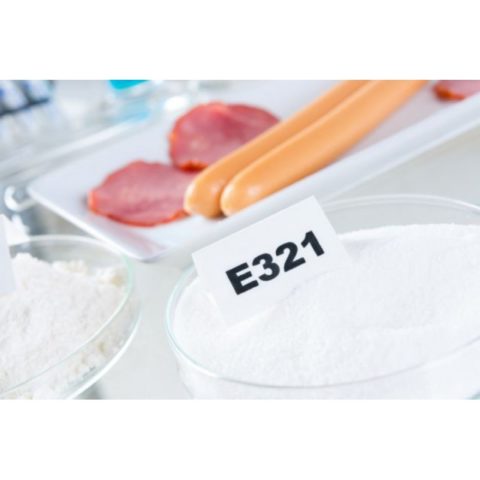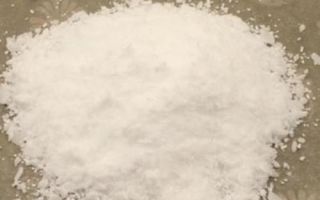Content
Antioxidants belong to the group of substances that prevent the development of oxidative processes in the human body. They help slow down the aging process. But there are not only natural, but also artificial origin. The second group is usually understood as preservatives whose action is aimed at extending the shelf life of the product. One of the most commonly used food additives is E321.
What kind of additive is E321
E321 belongs to the category of phenolic antioxidants. Simply put, the substance is a synthetic analogue of vitamin E.
In the industry, a component has several names in the form:
- butyloxytoluene;
- butylated oxytoluene;
- agidol-1;
- dibunol.
E321 additive is most often used in the food, cosmetic and pharmaceutical industries. Antioxidant of artificial origin is presented in powder form in white. It is characterized by the absence of smell and taste. It dissolves well in water, fat, alcohol and organic acids. Shows resistance to high temperatures.
What is the food additive E321 made of?
An antioxidant of artificial origin is obtained as a result of the synthesis of organic compounds. The reaction of alkylation of paracresol and isobutylene takes place. During this, the compounds are exposed to a strong catalyst in the form of sulfuric acid.

Is the food additive E321 harmful?
There has been a long debate about the dangers of the food additive E321. British doctors say that the substance adversely affects the development of children. The use of certain drugs contributes to the manifestation of hyperactivity syndrome.
Scientists from Israel say that the use of butyhydroxytoluene adversely affects the functionality of the reproductive system. These conclusions were made after testing the substance in rats. In addition, there is a risk of developing malignant tumors.
But there will be no particular harm to the body if the compound is used in small doses. The daily dosage should not exceed 125 mcg per 1 kg of body weight.
E321 food additive is dangerous or not
According to Russian scientists, E321 should be classified as dangerous. Although the preservative is not prohibited for use in various countries, it contributes to the accumulation of cholesterol in the blood.
If you constantly use the substance in large doses, this will lead to the appearance of unpleasant symptoms in the form of diarrhea, severe allergic reactions, and asthma attacks.
Where and why add food additive E321
E321 has good antioxidant properties in relation to foods.The substance prevents the development of oxidative processes even when exposed to sunlight. In addition, an antioxidant of synthetic origin exhibits a pronounced antimicrobial effect.
Remarkably, E321 is actively used in the food, pharmacological and cosmetic fields. But sometimes the antioxidant is used in the chemical industry. The substance is used as an additive. It is introduced into the composition of engine oils and petroleum chemistry. Add component to rocket fuel for stabilization.

Butylhydroxytoluene in cosmetics
The stabilizer is often added to the cosmetics most commonly used by women.
The preservative can be found:
- in lipsticks;
- in creams with a whitening and moisturizing effect;
- in powders and tonal creams.
Butylhydroxytoluene can also be found in tanning products.
Food supplement E321 in medicine
The component exhibits excellent antiseptic qualities. Therefore, the food supplement E321 is included in the composition of preparations for external treatment of the skin in case of radiation sickness, burns or the formation of trophic ulcers.
Dibunol was actively used during chemotherapy to treat some types of cancers.
Scientists also believe that butylhydroxytoluene, combined with ascorbic acid, suppresses the herpes virus. But this fact has not yet been sufficiently proven.
Food additive E321 in the food industry
The component is not prohibited, although it is considered dangerous to the body. Most often it is added to the composition of various products in the form of:
- ghee for culinary purposes;
- bakery products - crackers, dietetic breads;
- chewing gum;
- animal fats;
- broth cubes;
- beer drinks;
- canned meat and fish;
- processed cheeses;
- chips;
- lard.
A preservative is added to foods that are considered harmful and to some extent even dangerous - these are oils and fats. Upon contact with air, oxidative processes begin to occur, as a result of which a toxic compound is formed - peroxide. It gives the product an unpleasant and bitter taste. A preservative inhibits this process.
Conclusion
Food supplement E321 cannot replace vitamin E. Abuse of this substance threatens the development of serious complications. If a person has a lack of tocopherol, then it is better to replenish it with the help of natural products. But it is better to refuse from the synthesized antioxidant and completely exclude its use in childhood.

